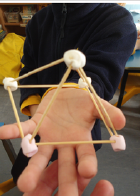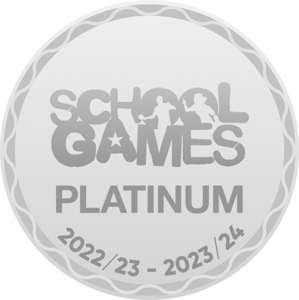
Pupil Premium
Pupil Premium is funding given to schools to address inequalities and enable support to reach the pupils who need it most.
It is for schools to decide how the Pupil Premium is spent, since they are best placed to assess what additional provision should be made for the individual pupils within their responsibility. As an inclusive school, Belmont strongly believes that no pupil should be disadvantaged as a result of background and the consistent attainment and progress of our pupils over a number of years shows our commitment.
At Belmont, we address barriers to the educational achievement of children eligible for this grant holistically. The main barriers include children (some of whom have previously lived in care) who need additional support with their emotional regulation and wellbeing and children from social or economic disadvantaged backgrounds who need to have access to an equal, broad curriculum. It is important to continuously find ways to ‘close the gap’ between the attainment of Pupil Premium children and their peers.
As well as funding a number of programmes and intervention groups to boost pupils’ attainment and progress, we ensure that disadvantaged pupils have access alongside their peers to extra-curricular opportunities to boost their health, well-being and self-esteem, which also impacts on attendance. A change to the eligibility criteria in 2014-15 to include children who have been ‘looked after’ (i.e. in care) at some point in their lives also enabled us to increase focused pastoral support and help for pupils to develop positive attitudes to themselves as individuals and to learning and relationships. Many of the pupils eligible for the grant also have additional special educational needs and/or other needs such as English as an additional language. The impact of these initiatives is measured by the progress children in this group make in comparison to their peers as well as to their ability to access learning and attend regularly.
Could Your Child Be Eligible for Pupil Premium Benefits?
Did you know that registering for Free School Meals could mean your child’s school receives extra funding through something called Pupil Premium?
Even though your child already receives a free school meal, completing the Free School Meal application form can unlock additional funding for you and our school. This funding is used to provide valuable support such as:
- Extra help with learning in class
- Access to clubs, trips, music lessons and enrichment opportunities
- Additional resources to support wellbeing and achievement
By applying, you are not only helping your own child but also supporting the school community as a whole.
Please check eligibility below depending on which borough you live in
Hounslow:
- https://www.hounslow.gov.uk/schools-colleges/free-school-meals
- https://forms.liberata.com/public-services/free-school-meals/hounslow
Ealing:
- https://www.ealing.gov.uk/info/201111/education_grants_and_financial_assistance/701/free_school_meals
- https://fsm.bslforum.com/ealing/Dseat.jsp?BSLSessionStr=100
If you think you may be eligible, we strongly encourage you to apply. Every application makes a real difference!
Pupil Premium Reports
Pupil Premium Grant Report 2024-2027
Although the report sets the outcomes for the next 3 years, the impact of interventions/ resources or support is reviewed annually.
Previous report: Pupil premium grant 2023
Able Pupils
Our School believes in the importance of appropriate educational provision for pupils of all abilities, including the most able.
We plan our teaching and learning to provide the opportunity for each child to reach the highest level of personal achievement. One of our teachers has particular responsibility as leader for gifted and talented pupils, monitoring this provision, advising colleagues and co-ordinating enrichment activities targeted to the needs of this group.
Class teachers cater for children’s needs and abilities through carefully planned and differentiated tasks and opportunities where children can develop higher order skills and take leadership roles within ongoing class activities and a suitably challenging curriculum. Carefully chosen classroom resources and targeted extra curricular activities also support the development of this group of pupils. The School keeps a register of the areas in which children demonstrate particular gifts and talents, whether they be in English, Mathematics, Science or the Humanities, Music or the creative arts, Art, Design or Technology, Physical Education or competitive sport.
The local cluster of Hounslow primary schools works together to provide enrichment opportunities for these more able children, sometimes with secondary school involvement as well. Recent events have included debating competitions, maths challenges and puzzle days. There are inter-school sports competitions, sometimes leading to involvement in events such as the London Youth Games, and opportunities for children to join Hounslow music groups and perform with other local schools at public venues.
Policy
Please refer to our Policies and Procedures page,












